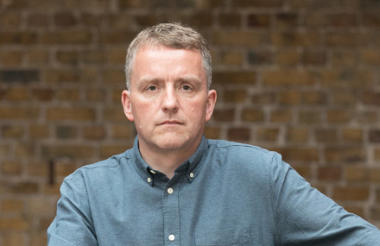The charity sector is in “serious trouble” and needs to reprioritise its role in building social capital in communities, Karl Wilding said yesterday.
He was speaking during a panel about voluntary action, the state and welfare provision, which was organised by Third Sector Research Centre and Health Services Management Centre University of Birmingham.
Wilding, chief executive of NCVO, said the pandemic has exposed both the sector’s strengths and weaknesses, and that “decades worth of sector change has been squeezed into six months”.
Ongoing restrictions on trading and fundraising prompted Wilding to warn: “I think our sector is in serious trouble.”
Learn the right lessons
Wilding also emphasised the importance of charities and policymakers learning the right lessons from the pandemic.
He said charities should be careful not to “over-claim” when it comes to the sector’s role in welfare provision.
The sector needs to acknowledge that there are times it is part of the problem, he added, and gave the example of the “powerful argument” made by #CharitySoWhite about structural racism in the sector.
He also warned of increasing “scepticism towards philanthropy and volunteering”, where charities can be seen as part of the problem.
One example of this is resistance from some mutual aid groups to advice from NCVO and others.
Mutual aid groups “really didn’t like organised voluntary action”, he said, because “we were saying ‘what are you doing about safeguarding?’”
He added that if government and politicians come to the conclusion that “mutual aid is the only thing worth supporting” and that they could “just leave community and people to get on with it”, he “would be worried”.
‘We need to be more organised’
Wilding said that it is important to work out whether the voluntary response to Covid-19 really has seen new people getting involved, or whether it is the “same active citizens, just doing different things”.
If it turns out that it is new people, then the challenge is to sustain this, he said.
He added that the sector is “really good at being at being quick at responding to need with boots on the ground”.
But it needs to be better organised and better connected to deliver longer term support. “As a sector we are not as organised as we could be, or should be,” he said.
Wilding explained that this was partly down to an emphasis on outputs and outcomes. And this means that “activity that builds social capital is not valued”.
The lack of investment in this area means responding to the crisis has been “more difficult that it could have been”, he said.
Proud of the sector
Wilding argued that there are reasons to be optimistic about the future, and said he is “proud of how we really tried to put people first during the crisis”.
He said charities are “more relevant, more vital to the future of welfare provision than we have ever been”, and that there is an opportunity for charities to fill a void that has been exposed by the pandemic.
“What people really look for is the ability to come together with shared experiences,” he said.
To do this, he argued, charities and funders need to think beyond the narratives around the sector's service provision and advocacy roles, and focus on what the sector can do to bring people together.
“That is the stuff that doesn’t get funded,” he said, because even though it “matters to a lot of people more than ever”, it “doesn’t have measurable outcomes”.
“I think we need a different sort of sector,” he concluded, saying “we are going to have to fund it differently”.
Understanding sector’s distinctive role
Kathy Evans, chief executive of Children England, was also speaking on the panel, and raised concerns about the view government has of charities.
“I don’t feel certain, from my engagement, that the government views our sector as a whole as a partner,” she said.
She criticised the marketisation of services that charities had originally invented, and said something needs to change to “get us out of that terrible quagmire”.
Evans said it was important to understand the distinctive role charities play in delivering public services, and “to preserve that voluntary sector space”.
She said the sector is a “place where we are free to do different things from the public sector and different from the private sector”, and described it as “entrepreneurial but not a market”.
“We are the bit missing between the market and the state, but I am not sure we have a government that recognises that.”
From pragmatic partnership to antagonistic collaboration
Irene Hardill, a researcher from the University of Northumbria, summarised research comparing the voluntary sector’s role in the 1940s with its role in 2010s.
She said that during the 1940s there was a “pragmatic partnership” between the state and voluntary sector.
By the 2010s, with the Big Society project “mired in suspicion”, the “relationship became one of antagonistic collaboration”.
Related articles










